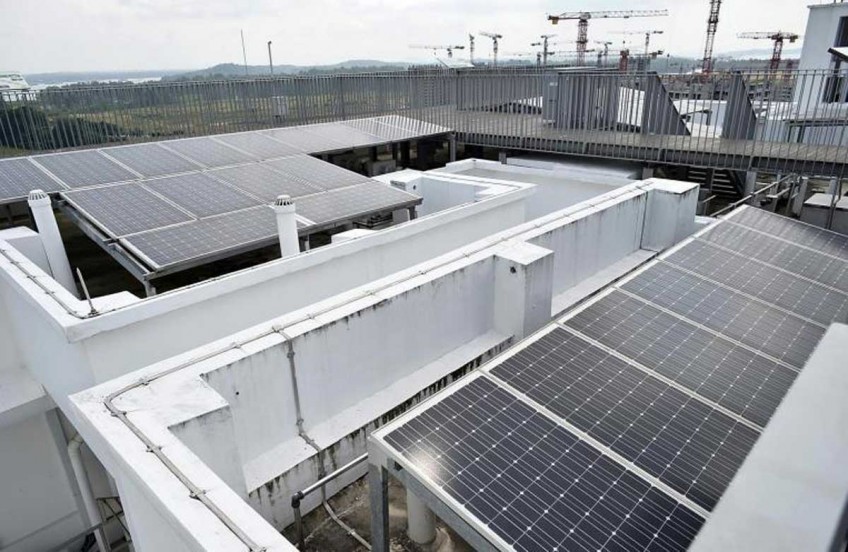S'pore pledges to rein in greenhouse emissions by 2030

Singapore has set itself the ambitious target of stopping any further increases to its greenhouse gas emissions by around 2030.
It has also pledged to become greener economically, by reducing the amount of greenhouse gases emitted to achieve each dollar of gross domestic product (GDP) - by more than a third.
The figures were set out in a document submitted to the United Nations yesterday, ahead of the Paris talks in December aimed at reaching a new climate agreement amid rising concerns over global warming and the dangers posed.
Deputy Prime Minister Teo Chee Hean, who chairs the Inter-Ministerial Committee on Climate Change, said yesterday that, "for a very small country with limited alternative energy options, the stabilisation of our emissions with the aim of peaking around 2030 requires serious efforts by everyone".
Singapore emitted greenhouse gases equivalent to 46.83 million tonnes of carbon dioxide in 2010. It plans to cap the figure at about 65 million tonnes by around 2030, and stop any more increases.
DPM Teo also called for the adoption of "best-in-class" technologies by industries here, to achieve higher levels of energy efficiency.
Professor Subodh Mhaisalkar, executive director of the Energy Research Institute at Nanyang Technological University, welcomed these targets, but said much more innovation would be required from people and businesses.
"We have already reduced our energy intensity substantially by changing from fuel oil to natural gas. Going forward, it will definitely be more challenging," he said.
Prof Michael Quah, director of the National University of Singapore Energy Office, said industrial energy efficiency will be "the toughest target, as industries are focused on high-quality, reproducible products with tried and true processes".
Still, he noted: "Singapore's goal is good as it shows commitment and connotes sustainable growth."
Currently, Singapore accounts for just 0.11 per cent of global emissions, even though it makes up 2.2 per cent of global trade.
The new targets were submitted to the United Nations Framework Convention on Climate Change, which sets a framework for intergovernmental efforts to tackle climate change. The aim is to develop an agreement for the post-2020 period that would help keep global temperatures from rising more than 2 deg C above pre-Industrial Revolution levels.
Scientists say that, given current emission trends, the world could see double that increase, which is likely to cause disastrous droughts, storms, floods and rising sea levels.

This article was first published on July 4, 2015.
Get a copy of The Straits Times or go to straitstimes.com for more stories.